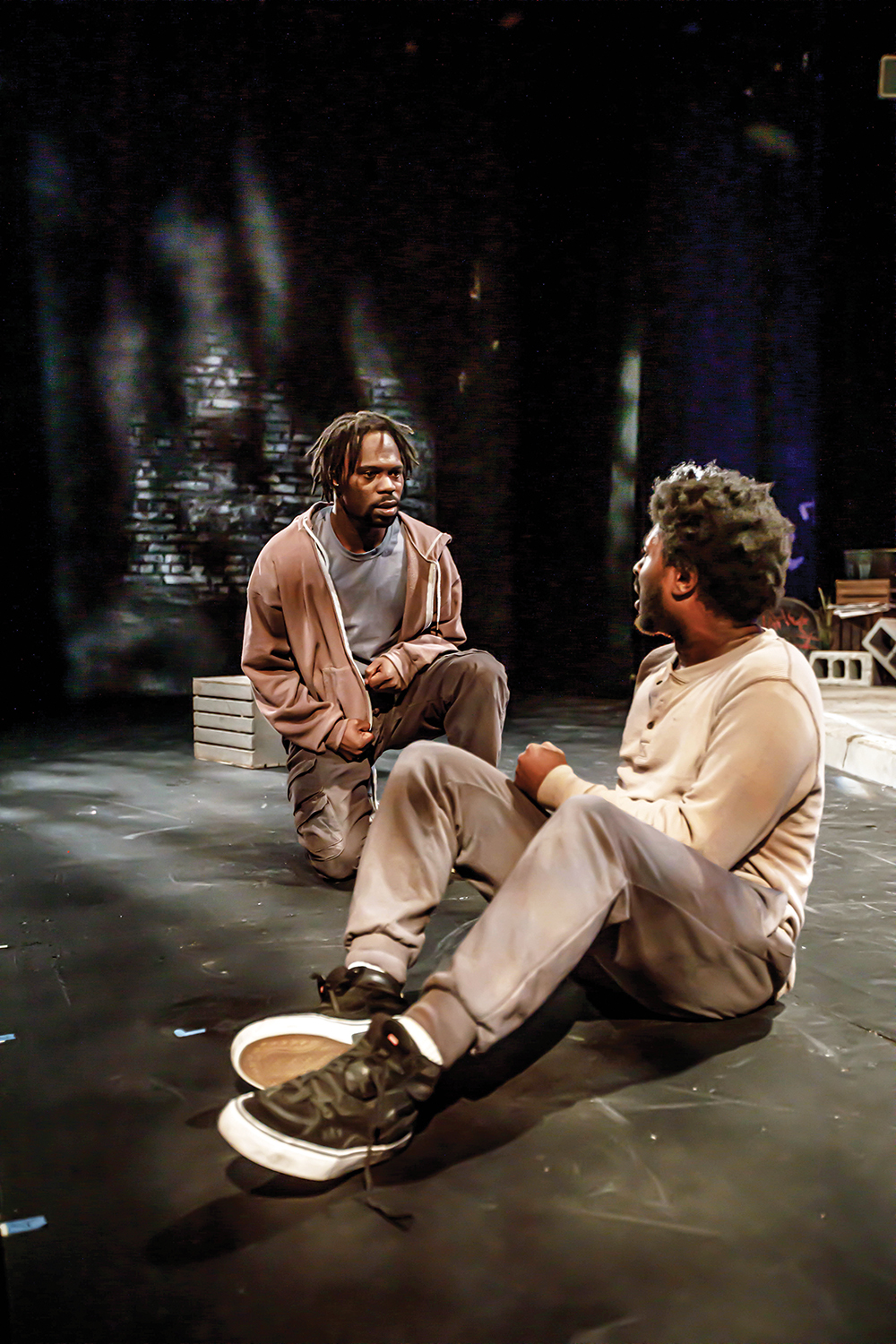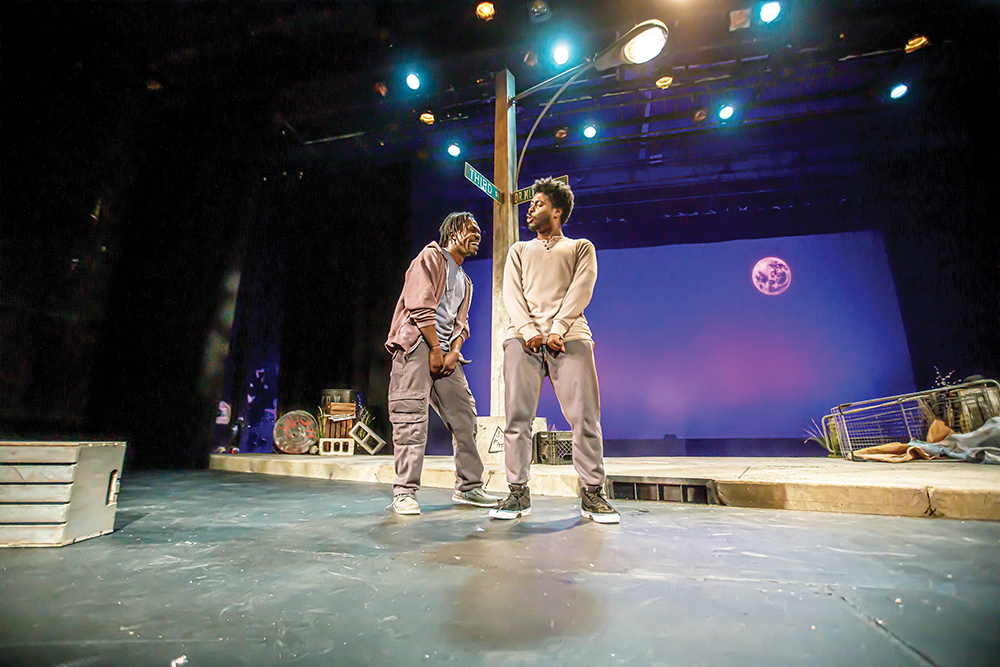The regional debut of Antoinette Nwandu’s poignant and powerful play Pass Over comes at a serendipitous time to Circuit Playhouse.
For our community, watching a production that comments heavily on gun violence and race so soon after a shooting spree ripped through the city might seem like too much. I would argue that this is a perfect example of why the arts are so vitally important. Watching, though at times uncomfortable, was also cathartic and important.
Pass Over takes place entirely in one location: a Memphis street corner. Scenic designer Chris Sterling includes details that let audiences know this particular production takes place in our town: one being a small, graffitied message inside a triangle — or, of course, a pyramid — which reads, “Memphis AF.” Any theater-lover will take one glance at the set and be reminded of Waiting for Godot, a similarity which does not end with staging.
Moses and Kitch, two out of only three performers in the show, stand on the corner shooting the shit and dreaming of the promised land until a stranger appears seemingly out of nowhere, disrupting what should be a day like any other.

This is a play I might need to see twice to catch all the nuances. I’m sure I missed some of the Biblical, historical, and literary references, which are heavily scattered throughout. Practically everything in Pass Over seems to be a metaphor, a fact which is humorously called out by the character Kitch, who mistakenly uses the word “megaphore.”
The enormous success of this production would not be possible without the nuanced performances of Cleavon Meabon IV and resident company members Marc Gill and Nathan McHenry. This is a show without a single set change, without traditional scene breaks, without even an intermission. The actors carry it from start to finish, holding the audience rapt with nothing but themselves, which is no small feat.
Gill and Meabon manage to achieve perfect chemistry. Their characters’ camaraderie and perpetual confabulation are so beautifully enacted that it brings to mind partners in a dance. Moses, whose barely checked rage is simmering under the surface, ready to boil over at any moment, is a stark contrast to Kitch, who is softer, somehow, more innocent and sweet-tempered. These two men are desperate to escape the street corner, to pass over (see? metaphors) to a better life, but something always seems to be holding them back. They are stuck, held in place by forces outside of themselves.
Then there’s McHenry, playing two roles, Mister and Ossifer. It is difficult to watch McHenry’s depiction of these two racist white characters, but this difficulty is a testament to the strength of his performance. It shouldn’t be easy to watch. That’s kind of the point. Mister/Ossifer is an amalgamation of the many different shades of racism, ranging from willful ignorance to outright white supremacy.
Another thread running through Pass Over is humor, often reaching a pitch of hilarity just before the tone abruptly shifts. Slapstick, physical comedy and biting, witty dialogue somewhat lessen the thematic punches of the play. Audiences will also enjoy Meabon’s vocal talent, as there is a musical moment nestled in the middle of the show. The soulful, resonant timbre coming from Kitch adds a rich depth to the character, who is otherwise often clowning around, the source of most of the comedic relief.
This play absolutely will evoke emotion from the audience. Pass Over forces you to look straight-on at things that many people — especially white people — instinctively shy away from. Furthermore, it confronts you with the question, “Why are you looking away in the first place?”
Jared Thomas Johnson’s directorial Playhouse debut is something every Memphian should see. In a Playhouse “Meet the Cast” promotional video, Meabon says, “That’s what this show is about. It’s about humanity. It’s about, do you see people? Black people as people?”
Pass Over runs through October 9th at The Circuit Playhouse.
